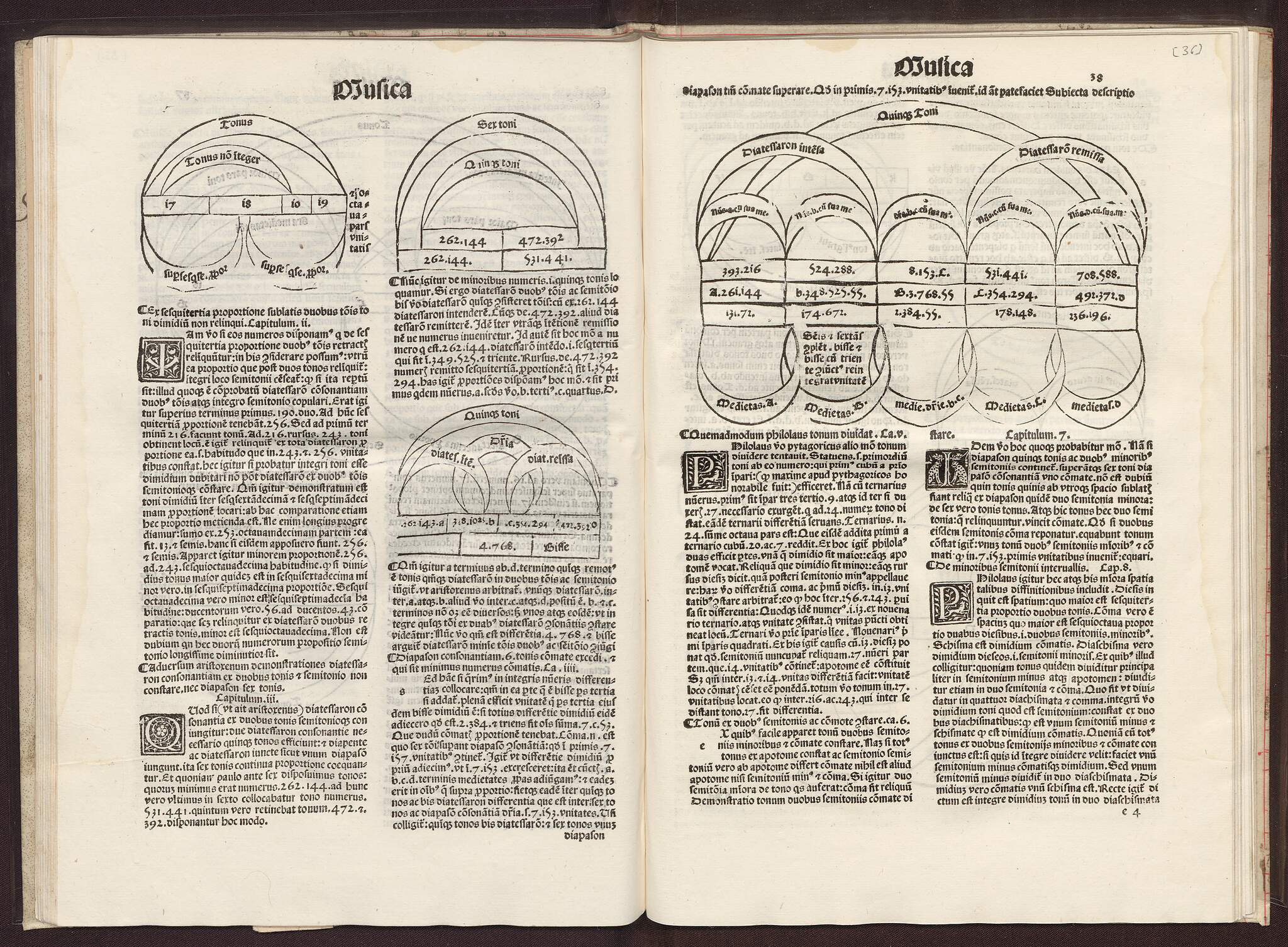Influence and Influencers

Anicius Boethius’s ideas about music were highly influential in both the early and the late Middle Ages when Dante lived. For Boethius, following Plato, music was at its essence created through arithmetic – starting with the octave ratio of 1:2 – an audible version of the universe’s principles of order and harmony. This is mirrored in above incunabulum’s combination of parts of Boethius’s writings on music (book V) as well as on arithmetic and geometry. For Boethius music was either cosmic: 'music of spheres' (musica mundana); or musica humana, as harmonious proportions are embodied in man’s body and soul. Musica instrumentalis – the last category – is audible music, either vocal or instrumental, ordered in the same way as the other two, and shown here in a representation of the ratios that determine musical intervals. Dante’s structure of Paradise in the Divine Comedy particularly suggests the influence of musica mundana and musica humana.